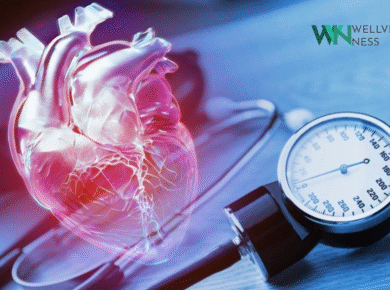In today’s fast-paced world, maintaining high energy levels throughout the day is essential for productivity and overall well-being. One of the key factors influencing energy levels is nutrition. Consuming a well-balanced diet plays a crucial role in sustaining energy levels, enhancing mental clarity, and supporting overall health. In this article, we will delve into the importance of balanced nutrition for optimal well-being, focusing on how it can positively impact energy levels, and provide tips for incorporating healthy eating habits into your daily routine.
Table of Contents
The Role of Nutrition in Energy Levels
Nutrition plays a pivotal role in determining our energy levels throughout the day. The food we consume serves as fuel for our bodies, providing the necessary nutrients and energy to carry out various physical and mental activities. A diet rich in complex carbohydrates, healthy fats, lean proteins, vitamins, and minerals can help sustain energy levels and prevent energy crashes. Conversely, consuming sugary snacks or processed foods can lead to rapid spikes and drops in blood sugar levels, resulting in fluctuations in energy levels.
Balanced Nutrition for Optimal Well-being
A well-balanced diet consists of a variety of foods from different food groups, ensuring that the body receives all the essential nutrients it needs for optimal functioning. Here are some key components of a balanced diet that can contribute to optimal well-being and sustained energy levels:
1. Complex Carbohydrates: Foods such as whole grains, fruits, and vegetables are rich in complex carbohydrates, which provide a steady source of energy throughout the day. These foods are also high in fiber, promoting digestive health and preventing energy crashes.
2. Lean Proteins: Lean protein sources like poultry, fish, tofu, and legumes are essential for muscle repair and growth. They also help regulate blood sugar levels, keeping energy levels stable.
3. Healthy Fats: Incorporating healthy fats from sources like avocados, nuts, seeds, and olive oil into your diet can provide a sustained source of energy and support brain health.
4. Vitamins and Minerals: Consuming a variety of fruits and vegetables ensures that you get a wide range of vitamins and minerals essential for overall health and energy production.
5. Hydration: Staying hydrated is crucial for maintaining energy levels. Aim to drink plenty of water throughout the day to prevent dehydration, which can lead to fatigue and decreased energy levels.
Incorporating Healthy Eating Habits
In addition to focusing on specific nutrients, adopting healthy eating habits can further enhance your energy levels and overall well-being. Here are some tips for incorporating healthy eating habits into your daily routine:
1. Eat Regularly: Aim to eat regular meals and snacks throughout the day to maintain steady energy levels. Skipping meals can lead to drops in blood sugar, causing fatigue and irritability.
2. Portion Control: Pay attention to portion sizes to avoid overeating, which can lead to feelings of sluggishness and fatigue.
3. Mindful Eating: Practice mindful eating by savoring each bite and paying attention to hunger and fullness cues. This can help prevent overeating and promote better digestion.
4. Balanced Meals: Include a balance of carbohydrates, proteins, and fats in each meal to ensure that you’re getting a variety of nutrients.
5. Meal Planning: Plan your meals ahead of time to ensure that you have healthy options available and avoid relying on convenience foods that are often high in sugar and unhealthy fats.
By incorporating these tips into your daily routine, you can optimize your nutrition for sustained energy levels and overall well-being.
FAQs
Q: Can certain foods boost energy levels?
A: Yes, foods rich in complex carbohydrates, lean proteins, and healthy fats can provide sustained energy throughout the day.
Q: How does hydration impact energy levels?
A: Staying hydrated is essential for maintaining energy levels. Dehydration can lead to fatigue and decreased cognitive function.
Q: Are there specific foods to avoid for optimal energy levels?
A: Foods high in added sugars and processed foods can cause rapid spikes and drops in blood sugar levels, leading to fluctuations in energy levels. It’s best to limit these foods and focus on whole, nutrient-dense options.
In conclusion, balanced nutrition plays a critical role in maintaining optimal energy levels and overall well-being. By focusing on a diet rich in complex carbohydrates, lean proteins, healthy fats, vitamins, and minerals, you can sustain your energy throughout the day and support your body’s needs. Incorporating healthy eating habits like regular meals, portion control, mindful eating, balanced meals, and meal planning can further enhance your energy levels and promote overall health. Remember, what you eat directly impacts how you feel and function, so make informed choices to fuel your body for optimal well-being.












